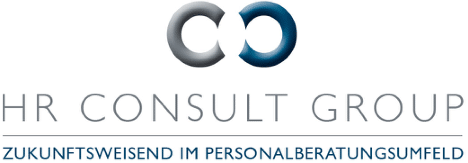In a time of rapid technological developments and global networking, the headhunting profession is more important than ever. But what makes this profession so special and how has it changed in recent years? This article looks at various aspects of the headhunting profession, from its fundamental role to ethical issues. We dive into the strategies and tools that modern headhunters use and take a look at the future prospects of this exciting profession.
What is the headhunter profession actually?
The headhunting profession revolves around identifying, approaching and recruiting highly qualified professionals for companies. Unlike normal recruitment agencies, which often place a wide range of candidates, headhunters specialize in finding talent for very specific roles and industries.
Headhunter profession vs. in-house recruiting
One question that often arises is why companies hire external headhunters at all if they can also recruit in-house. The answer lies in the headhunter's specialization, which requires in-depth industry knowledge and a broad network that is often not available internally.
The myth of the headhunter
The headhunting profession is often surrounded by an aura of secrecy. The idea that headhunters operate in secret and almost "hunt" their candidates persists. In reality, however, the headhunting profession is much more strategic and methodical.
The tools of the headhunter's trade
Professionals use a variety of tools and strategies in the headhunting profession. These include big data analytics to identify potential candidates and advanced communication tactics to effectively target these candidates. The role of AI in the headhunting profession is becoming increasingly important. Algorithms and machine learning can be used to automate the shortlisting of candidates by scanning CVs, assessing skills and even predicting how well a person might fit in a particular company culture. This allows headhunters to use their time and resources more efficiently as they can focus on candidates that have already been identified by intelligent systems as a potential fit. Alongside advanced data analytics and AI algorithms, social networks remain a key element in a headhunter's toolbox. Platforms such as LinkedIn are essential for making initial contact with potential candidates. Headhunters use these networks not only to identify, but also to verify candidates' qualifications and skills and to make contact.
Ethics in the headhunting profession
The headhunting profession is sometimes criticized because it often demands high recruitment fees and "lures" candidates away from their current positions. However, a good headhunter always ensures that the interests of both the candidate and the company are taken into account. Confidentiality is the be-all and end-all here. Both companies and candidates must be able to trust that their data and information will be handled securely and discreetly.
Future prospects in this profession
Digital transformation and global networking
Digitalization is changing the headhunting profession in a way that was unthinkable just a few years ago. Today, global networking makes it possible to search for talent in every corner of the world. Especially in times when remote working is becoming increasingly common, the talent pool from which headhunters can draw is expanding enormously.
Artificial intelligence and machine learning
As mentioned above, AI and machine learning offer fascinating opportunities for the headhunting profession. It is not far-fetched to think that in the future, algorithms may even be able to predict a candidate's long-term career development. This would allow the headhunter to create not only short-term but also long-term matches between companies and talent.
Internationalization and cultural sensitivity
With increasing internationalization, headhunters must take cultural differences into account in their strategies. Cross-cultural skills are becoming increasingly important, especially when it comes to forming international teams. The ability to recognize and exploit both cultural differences and similarities will be a decisive factor in the headhunting profession in the future.
Adaptability and continuous learning
The headhunting profession requires a high degree of flexibility and adaptability. Trends in recruiting change often and quickly, so lifelong learning is a must for anyone who wants to be successful in this field. Further training, certificates and the will to constantly improve are decisive factors for long-term success.
Sustainability and social responsibility
Another trend that is emerging is the increasing focus on sustainability and social responsibility. Companies are increasingly looking for talent that not only fits in professionally, but also ethically and socially. Headhunters must therefore also include these aspects in their search and advice.
The headhunting profession is a dynamic and complex field that is constantly changing. The demands are high: in-depth industry knowledge, a broad network, strategic thinking and, last but not least, a high degree of ethical and social responsibility are crucial. Technological innovations, especially in the field of artificial intelligence and machine learning, offer new opportunities, but also bring new challenges. If you want to be successful in this profession, you have to be prepared to continuously learn and adapt. The importance of the headhunting profession will continue to grow in an increasingly networked world, so that both companies and specialists can benefit from it.




